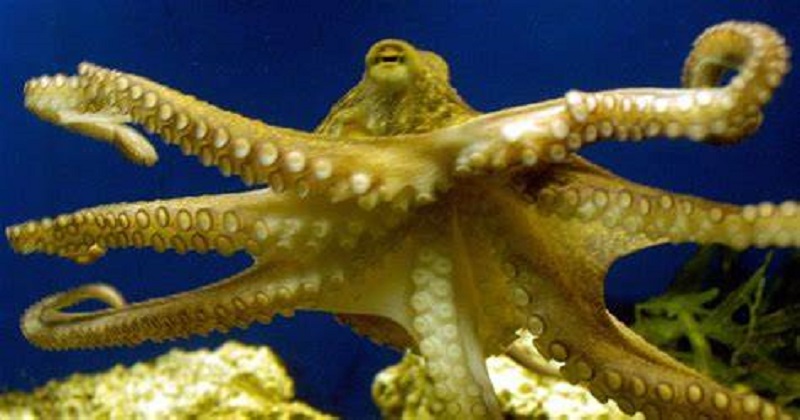
Scientists have discovered the earliest known progenitor of octopuses in Montana, a 330 million-year-old fossil. The researchers found that the ancient organism lived millions of years before dinosaurs, implying that octopuses existed before the dinosaur era.
The 4.7-inch (12-centimetre) specimen features ten limbs, compared to eight for modern octopuses, each with two rows of suckers. It most likely resided in a tropical, shallow ocean bay.
Mike Vecchione, a Smithsonian National Museum of Natural History zoologist who was not involved in the study said, ‘It’s very rare to find soft tissue fossils, except in a few places. This is a very exciting finding. It pushes back the ancestry much farther than previously known’.
Also Read: Aishwaryaa Rajinikanth back to work after post-COVID-19 illness
In 1988, the specimen was discovered in Montana’s Bear Gulch limestone formation and given to the Royal Ontario Museum in Canada. For decades, the fossil remained forgotten in a drawer as experts analysed other findings from the site, including fossil sharks. The 10 small limbs encased in limestone were found later by palaeontologists.
Christopher Whalen, an American Museum of Natural History paleontologist and co-author of the study published Tuesday in the journal Nature Communications stated that the well-preserved fossil also shows some indications of an ink sac, probably used to squirt out a dark liquid cloak to assist elude predators, just like modern octopuses.
The species, known as a vampyropod, is thought to be the progenitor of both modern octopuses and vampire squids, which are more closely related to octopuses than squids. According to the scientists, the ‘oldest known definitive’ vampyropod was previously thought to date from roughly 240 million years ago.
President Joe Biden inspired the scientists to name the fossil Syllipsimopodi bideni. By doing so, researchers added that they meant to express their enthusiasm for the president’s science and research initiatives.

Post Your Comments